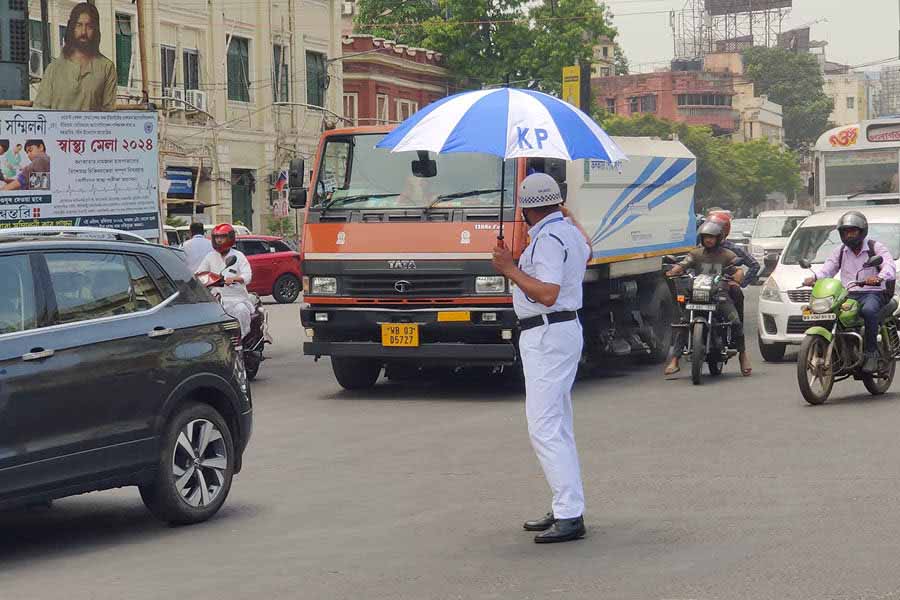If you reached your workplace much faster than usual in the past few days, it is not happenstance.
The searing heat has changed the peak traffic hours and made roads much emptier for the rest of the day.
Metro undertook the uphill task of listing some upsides — you read that right — of the prevalent scorching conditions.
Smooth traffic
The heat has brought forward the peak hour for the city’s traffic in the morning by over an hour. Most of the office-bound traffic is now over by 9.30am.
A majority of people are hitting the road quite early in the day and are at their workplace by 9.30am, senior police officers manning traffic on the city’s roads said.
“Earlier, the morning peak office hour traffic would last up to 11. That isn’t the case on most thoroughfares now,” said a senior police officer.
By 8.30am, intersections on some of the key thoroughfares — Diamond Harbour Road, EM Bypass, APC Road and AJC Road, for example — now see long tail-ups at traffic lights, several traffic guards said.
“I leave by 8.15am carrying water and ORS with me just to avoid the heat,” said Shantanu Ghosh, a Kasba resident who drives to his office in Sector V. “By 9, the parking lots are more or less full these days.”
Utpal Barik, who drives from a housing complex in Joka to his office in Dalhousie, leaves home at 10am and reaches by 10.45am. “It was unthinkable even a month ago. It would take me at least 75 minutes,” he said.
Missing sting
Mosquitoes are fewer, several neighbourhoods reported.
Arnab Mondal, a resident of Naktala, is usually unable to spend time on his terrace in the evening because of mosquitoes. For most of this April, the “sting armies” were missing.
Debashis Biswas, chief vector control officer of the Kolkata Municipal Corporation, said a crucial reason for the missing mosquitoes was the absence of accumulated water.
April had just one day of mild rain.
“The Aedes aegypti (which causes dengue) and Anopheles stephensi (which causes malaria) require water to remain stagnant in a place for seven to ten days. The water source is unavailable now,” said Biswas.
Owing to heat and scorching sun, water sources like containers, unused and open water tanks have dried up.
Virus recedes
Viral infections seem to be on the decline, said doctors.
Chandramouli Bhattacharya, an infectious diseases specialist, said that some viruses may not do well in this heat but it does not hold for all viruses. He said one of the primary reasons for a dip in viral infections is the early onset of summer vacation in schools.
“Schools have always been hubs of the spread of viral infections. Children get infected and then pass on the infection to elders. The opposite happened during Covid, where parents brought the infection home,” said Bhattacharya, who is with the Peerless Hospital.
The elderly and children are mostly staying indoors now, which is also contributing to a dip in some viral infections. However, there is no evidence to say that all viral infections go down with heat and high temperatures, said Bhattacharya.
“Covid did not decline in the peak of summer. There are still people who are suffering from upper respiratory tract infections,” he added.











